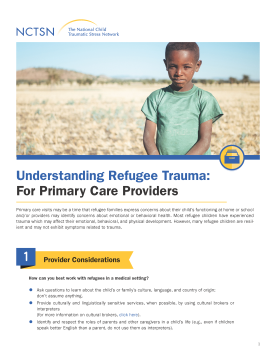
Understanding Refugee Trauma: For Primary Care Providers
Outlines different considerations that primary care providers need to take into account when working with refugee youth and their families.
June was first declared as World Refugee Awareness Month in 2001. Since then, June has been a time to acknowledge strength, courage and perseverance of millions of refugees who live around the globe. Refugee children and their families must deal with past traumatic experiences while integrating into a new and unfamiliar society. They must look for safety in an unknown culture, and ask for help in a nonnative language. These children and families have experienced war-related trauma and disruption, as well as resettlement, poverty, unemployment, stigmatization, and bias.
The National Child Traumatic Stress Network (NCTSN) has compiled a list of helpful resources for parents and caregivers, children, mental health providers, child welfare and juvenile justice professionals, healthcare providers, educators and school staff, and policy makers.
A list of external resources related to World Refugee Awareness Month is available here.

Outlines different considerations that primary care providers need to take into account when working with refugee youth and their families.
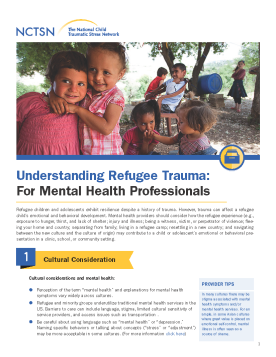
Outlines different considerations that mental health professionals need to take into account when working with refugee youth and their families.
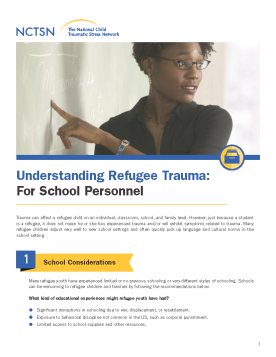
Outlines different considerations that school personnel need to take into account when working with refugee youth and their families. This fact sheet describes the school, classroom, individual, and family considerations that school staff should understand when working with this population.
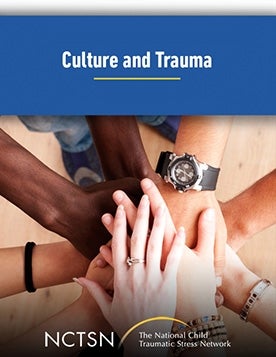
Offers information about refugee arrivals in the U.S. and refugee mental health needs and best practices.
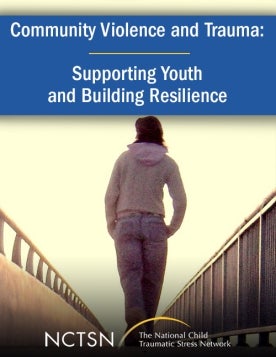
Offers information on refugee youth and their families.
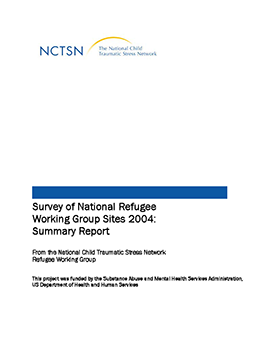
Summarizes findings from a survey done by the NCTSN Refugee Working Group Sites in 2004.
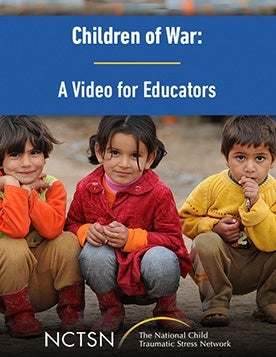
Includes a segment from the play Children of War and a documentary about the scope and impact of refugee trauma and its consequences for youth in schools.
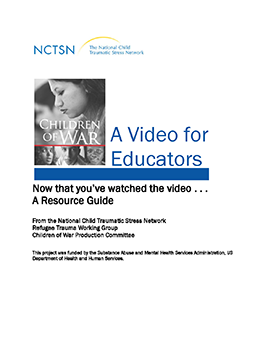
Accompanies the Children of War video and includes discussion questions, suggestions about ways schools and teachers can help refugee students and families, and provides information on the effects of traumatic stress on school performance.
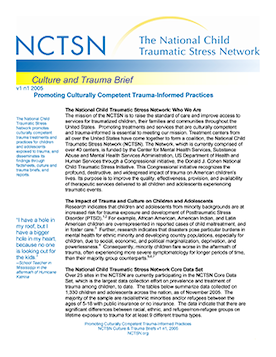
Highlights the need for clinicians and policy makers to understand the links between trauma and culture.
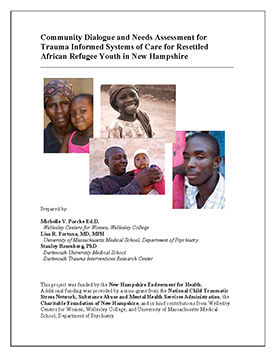
Documents the results of a project that engaged African refugee youth, community members, and service providers.